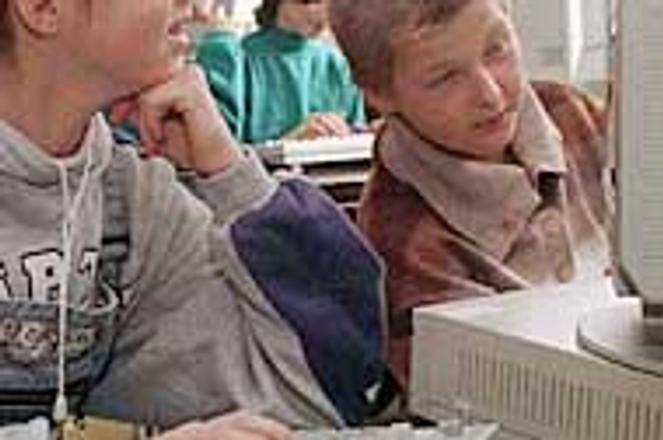HIGH Internet connection rates have been blamed for holding back use of the web in Slovak schools and homes.photo: TASR
FIXED-LINE telecoms monopoly Slovenské Telekomunikácie (ST) has rejected accusations by a civic association that it is deliberately delaying the introduction of new technology that would make Internet access cheaper and quicker.
Reacting to claims from the group Internet for Everyone that it has deliberately delayed introducing DSL (Digital Subscriber Line) technology despite promises to do so last year, ST said the service was not yet being offered for technical reasons.
"Slovak Telecom is preparing to launch this service in the second half of 2002. Obviously this depends on the successful realisation of a pilot service. It is a demanding project which requires complex and precise technological preparation," the firm said in a prepared response to questions.
The company, which will lose its monopoly next year, has in the past been accused by Internet providers of abusing its market position and hampering growth of the Internet and on-line business.
In October 2000 the Anti-Monopoly Office (PMÚ) fined ST Sk10 million ($200,000) after it installed 'frequency filters' on some fixed lines, limiting data transfers and costing users up to five times as much as original Internet connection rates on the same lines.
Doubt over the reasons behind ST's delayed introduction of the DSL service has spread among some of its competitors.
"The incumbent always gets to choose the speed of the game when it comes to things like this," said Dag Storrosten, head of the Slovak arm of Internet provider Nextra.
"Introducing DSL would make the competition on the telecom market much more fair and, in the long run, allow more people to use the Internet. The questions for ST may have been what to do about giving the service to the competition."
All ST competitors rent fixed lines from ST, and will be able to offer DSL once ST has introduced the technology.
The latest claims from Internet for Everyone have come as ST prepares to raise phone tariffs and Internet connection rates in July. The advocacy group claims that the rises will raise the costs of Internet access by between 40 and 50 per cent.
Prices for Internet connections are now Sk49.20 per hour and Sk19.20 per hour without value added tax (VAT) for full and cheap rate dial-up connections respectively, according to ST's own advertised charges.
The group claims that the planned rises will see the cheapest rate on standard analog lines rise to Sk30 per hour. Combined with the delayed introduction of DSL, this will dramatically affect what is already a relatively low Internet penetration rate in Slovakia, it says.
"ST's advertisements claim that 'everything is on the web'. But in our opinion it's impossible to get to the web," said Peter Polakovič of Internet for Everyone.
ST officials have said the rise will not be as dramatic as the group claims, and say they are preparing a number of special offers for customers offering a range of tariffs for connection to the Internet.
Internet providers attacked ST in January when it said it would be raising prices this year, and Internet for Everyone organised a petition it claims 9,500 people have signed.
Prime Minister Mikulas Dzurinda, backed by other politicians in both government and opposition parties, urged ST not to implement steep price hikes in a meeting with Ladislav Mikuš, head of the Deutsche Telecom-owned monopoly. Dzurinda expressed concern that large price rises would hurt Internet development.
The Association of Internet Providers (API) says the expense of connections has stunted Internet growth in Slovakia, which languishes behind neighbours Poland, Hungary and the Czech Republic in the percentage of the population using the Internet.
The API claims that only two to three per cent of the Slovak population has a home connection to the Internet, while the group's figure for EU states ranges between 12 and 36 per cent.
ST said its prices were not the cause of what it admitted was a low rate of Internet penetration in Slovakia, and said "the barriers to Internet development" were high prices for hardware and the relatively low purchasing power of many households.
The company also claimed it was actively helping the development of the Internet with its eSlovakia initiative and its continued support for Project Infovek, a partially state-funded program to provide Internet links in schools.
However, Nextra's Storrosten said there would be further damage to Internet development when the price hikes went ahead.

